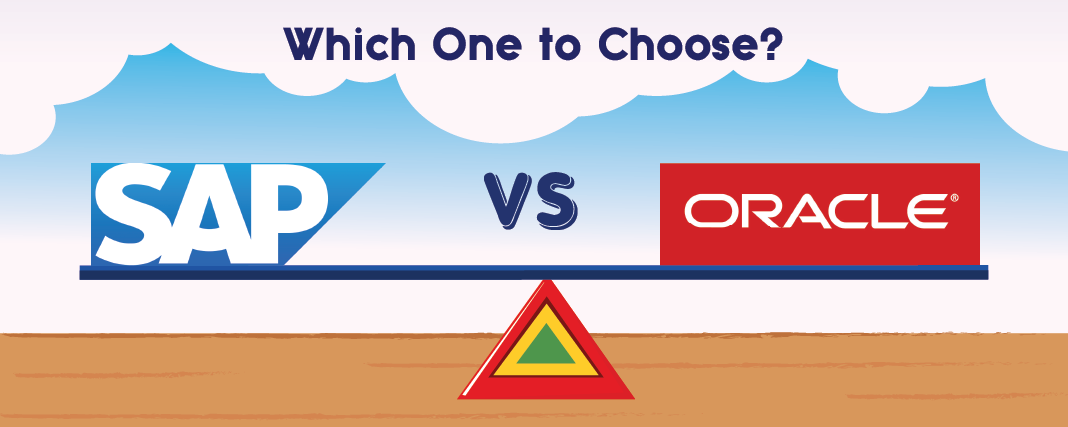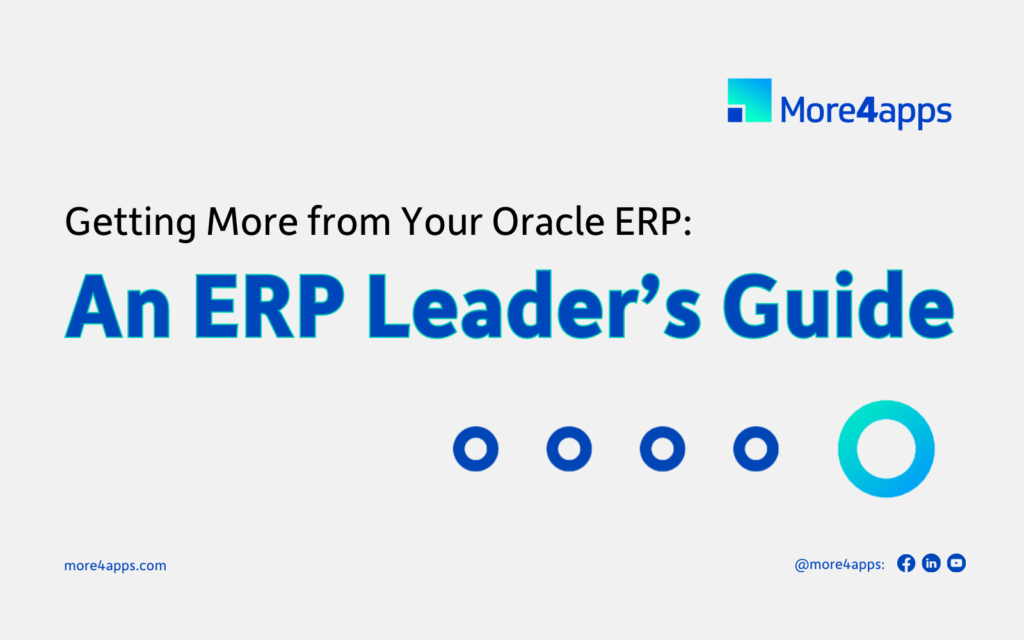Choosing which is best out of Oracle and SAP is a bit like deciding which is your least favourite child. In today’s rapidly evolving business landscape, organizations, both big and small, are constantly seeking ways to optimize their operations and stay ahead of the competition.
These industry giants offer a range of software products and services to help businesses manage their finances, supply chain, human resources, and more. But which is best for your business, Oracle or SAP? Let’s dive into the comparison to help executives make an informed decision.
Understanding Oracle and SAP:
Before we delve into the comparison, it’s important to have a basic understanding of what Oracle and SAP offer.
Oracle: Oracle Corporation is renowned for its database management systems, cloud infrastructure, and a suite of business software applications. It caters to a wide range of industries, including finance, manufacturing, healthcare, and retail, with products like Oracle E-Business Suite, Oracle Fusion Cloud, and Oracle NetSuite.
SAP: SAP SE, on the other hand, specializes in enterprise software applications for managing business operations and customer relations. Their offerings include SAP S/4HANA, SAP Business One, and SAP Business Suite, serving industries such as automotive, utilities, and aerospace.
Comparing Oracle and SAP
- Integration:
- Oracle: Oracle provides a seamless integration between its various products. It offers a unified platform that facilitates collaboration and data sharing across different departments.
- SAP: SAP also emphasizes integration, and their solutions are known for their ability to connect various business processes efficiently. SAP’s HANA platform is designed for real-time data analysis and reporting.
- Scalability:
- Oracle: Oracle offers scalability options, making it suitable for both small businesses and large enterprises. Its cloud solutions allow organizations to adjust their resources as needed.
- SAP: SAP’s products are highly scalable, catering to the needs of businesses of all sizes. SAP S/4HANA, in particular, is designed for scalability, enabling businesses to grow without changing their core systems.
- Industry Focus:
- Oracle: Oracle has a broad industry focus, with solutions for a wide range of sectors. This versatility can be advantageous for businesses that operate in multiple industries or have diverse operations.
- SAP: SAP has a strong presence in industries like manufacturing, utilities, and healthcare. Their industry-specific solutions are tailored to meet the unique needs of these sectors.
- User-Friendliness:
- Oracle: Oracle’s software is known for its user-friendly interface, making it easier for employees to adapt to new systems and processes.
- SAP: SAP places a strong emphasis on user experience and offers intuitive interfaces. However, some users may find it slightly more complex than Oracle, requiring additional training.
- Cost Considerations:
- Oracle: The cost of Oracle’s solutions can vary widely depending on the specific products and services chosen. Smaller businesses may find some of their offerings more cost-effective.
- SAP: SAP’s solutions tend to be more expensive, which can be a factor to consider for smaller businesses. However, the investment often comes with advanced features and capabilities.
- Cloud Capabilities:
- Oracle: Oracle has a robust cloud infrastructure and offers cloud-based solutions that are scalable and flexible. They have made significant investments in cloud technology.
- SAP: SAP has also embraced cloud computing with SAP S/4HANA Cloud and SAP Business Technology Platform, providing cloud options for businesses seeking modern ERP solutions.
Conclusion:
Choosing between Oracle and SAP ultimately depends on your organization’s specific needs, industry, and budget. Both companies offer robust and comprehensive solutions for managing your business operations effectively.
For those seeking seamless integration and user-friendliness, Oracle may be the better choice. On the other hand, if scalability and industry-specific solutions are top priorities, SAP could be the way to go. The cost consideration is crucial, and businesses should carefully assess their budgetary constraints when making a decision.
In summary, there’s no one-size-fits-all answer to the question of whether Oracle or SAP is the best choice. Senior executives and decision-makers should consult with their IT teams, conduct thorough research, and consider the unique requirements of their business to make an informed choice.
Whether you opt for Oracle or SAP, investing in the right ERP solution can drive efficiency, streamline operations, and position your organization for success in today’s competitive business environment.





